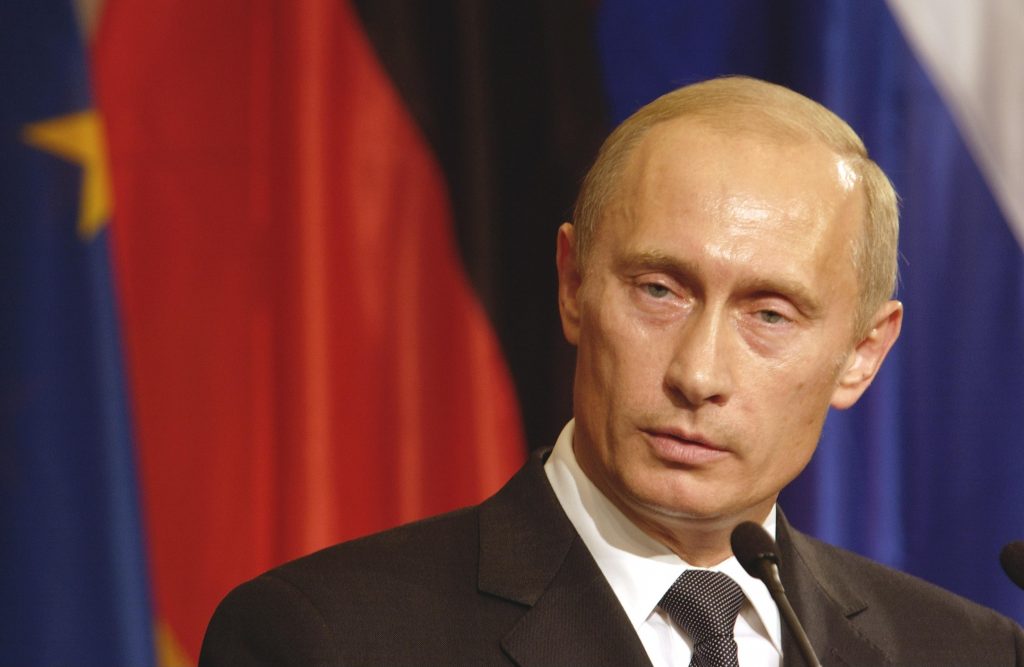Russia launched its long-feared attack on Ukraine, striking major cities and strategic sites over a wide geographical area in an operation described by Kremlin leader Vladimir Putin as a swoop to “demilitarise and denazify” but not to occupy its ex-Soviet neighbour.
Russian troops, massed on Ukraine’s borders for several months, appeared to have poured into Ukrainian territory from different directions – from Crimea, annexed by Russia eight years ago, from Belarus, Russia’s ally on Ukraine’s northern border and from eastern Ukraine, where Russian proxies have held large swathes of territory for eight years.
Western countries denounced the Russian incursion, launched as the U.N. Security Council was debating the prospect of intervention, and pledged to introduce tough punitive measures on the Kremlin. U.S. President Joe Biden said Putin had “chosen a premeditated war that will bring a catastrophic loss of life and human suffering.”
Explosions were heard in the capital Kyiv, the country’s second city, Kharkiv, and in Mariupol in the east, Kherson near the Crimean Peninsula and as far away as Ivano-Frankivsk in western Ukraine. Reports of dead and wounded were coming in from widely separated parts of the country.
Ukrainian President Volodymyr Zelensky decreed martial law in the country and later announced diplomatic relations had been severed with Russia. He and other leaders urged Ukrainians to remain calm and stay home. Foreign Minister Dmytro Kuleba called for stringent sanctions, including banning Russia from the international Swift bank transfer system.
Lines of cars poured out of the capital as residents sought refuge in areas less likely to catch Russia’s military attention. Other residents took refuge in the city’s metro.
The Russian action, anticipated as troops took up position and moved closer to the border for several weeks, was taken in response to a call for assistance from two breakaway areas of eastern Ukraine. Putin formally recognised the two regions earlier this week.
Putin’s disdain for Ukraine
Putin has viewed Ukraine with disdain since a Russia-friendly Ukrainian president fled the country in 2014 during large street protests. Those events were quickly followed by Russia’s annexation of Crimea and the fomenting of a rebellion by Russian proxies in eastern Ukraine’s Donbas region.
Moscow had for weeks insisted it had no intention of invading its neighbour, but pressed the West to provide “security guarantees” including an undertaking that NATO would expand no further and Ukraine would never join. In an address to Russians this week, he said those appeals had been ignored and restated accusations that Kyiv had committed “genocide” in Russian-speaking eastern Ukraine.
“I have taken the decision to carry out a special military operation,” Putin said. “Its goal will be to defend people who for eight years are suffering persecution and genocide by the Kyiv regime. For this, we will aim for demilitarisation and denazification of Ukraine, as well as taking to court those who carried out multiple bloody crimes against civilians, including citizens of the Russian Federation.”
He called on Ukrainian soldiers to lay down their arms immediately.
“Anyone who tries to interfere with us, or even more so, to create threats for our country and our people, must know that Russia’s response will be immediate and will lead you to such consequences as you have never before experienced in your history,” Mr. Putin said. “We are ready for any turn of events.”
Russian military statements said strikes had been carried out against strategic targets.
“High-precision weapons are making inoperable the Ukrainian army’s military infrastructure, air defence systems, airfields and air forces,” a Russian Defence Minister statement said.
Biden said the world would “hold Russia accountable” for bloodshed. He was due to address Americans later in the day on the situation.
European Commission Chief Ursula von der Leyen said the EU would put together a “package of massive and targeted sanctions” for approval by the bloc’s leaders.
“With this package, we will target strategic sectors of the Russian economy by blocking their access to key technologies and markets. We will weaken Russia’s economic base and its capacity to modernise,” she said.
Germany halts Nord Stream 2 gas pipeline
Germany this week suspended the process for registering the Nord Stream 2 gas pipeline due to take Russian gas to Germany and beyond to other European countries, The project had received heavy backing from both Berlin and Moscow.
As the hours ticked down to the invasion Ukrainian President Zelensky issued a direct appeal to Russians, saying neither Kyiv nor Moscow needed a war,
“Today I initiated a phone call with the president of the Russian federation. The result was silence,” he said.
“Along this border your troops are stationed, almost 200,000 soldiers, thousands of military vehicles. Your leaders approved them to make a step forward, to the territory of another country. And this step can be the beginning of a big war on the European continent.”
In the weeks leading up to the invasion, Western leaders, particularly European leaders, had launched a frenzy of diplomatic contacts to prevent any outbreak of war – French President Emmanuel Macron and German Chancellor Olaf Sholz made lightning visits to both capitals,
Macron had called for efforts to focus on the two “Minsk accords” signed in 2014 and 2015 as the basis for a diplomatic solution. But Putin’s granting of recognition to the two separatist “people’s republic” effectively buried any attempt at a negotiated settlement.

